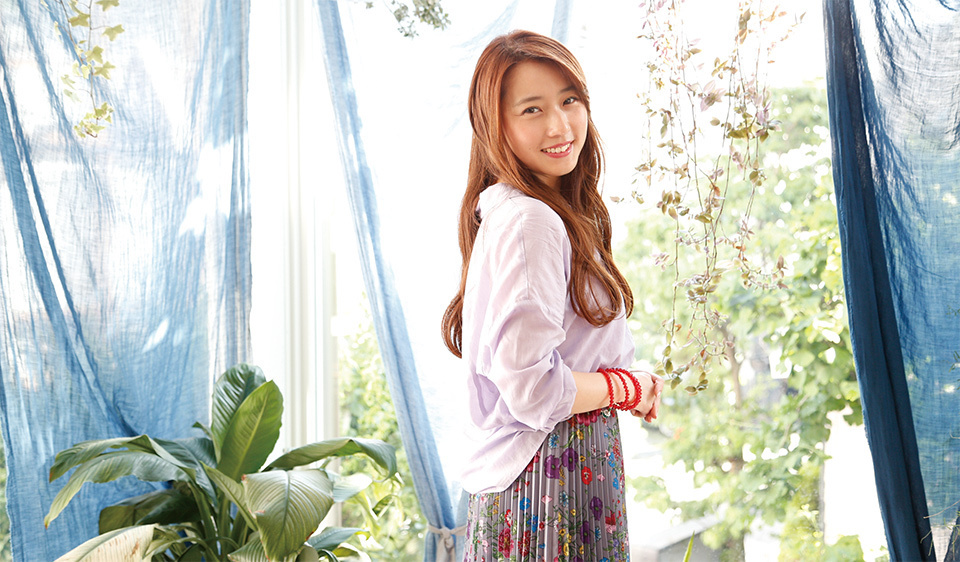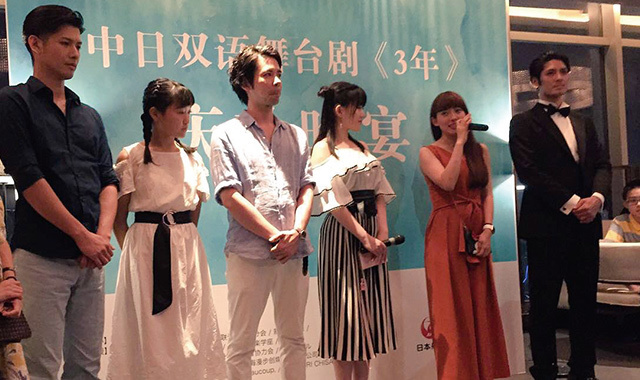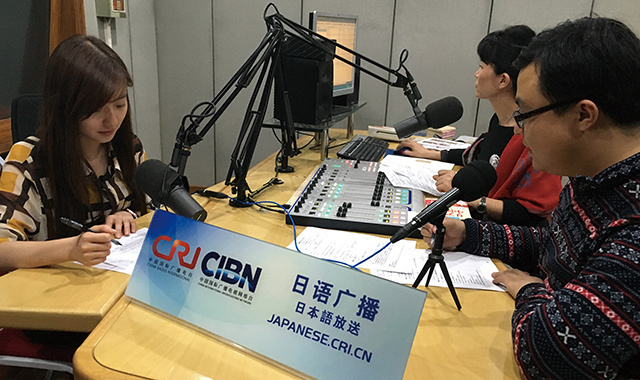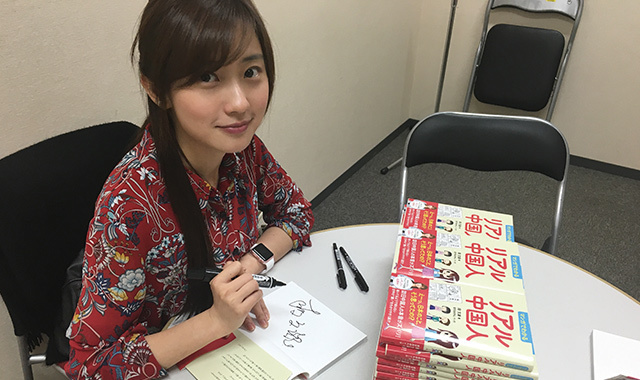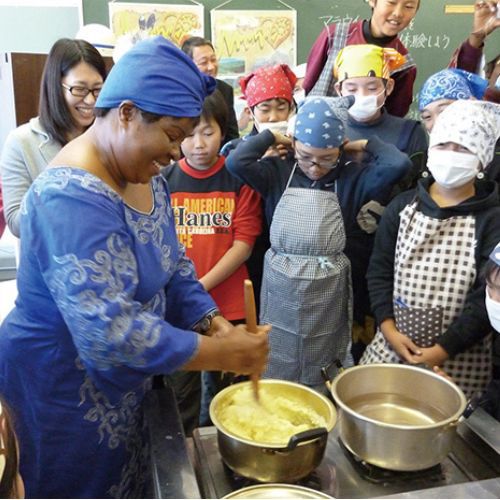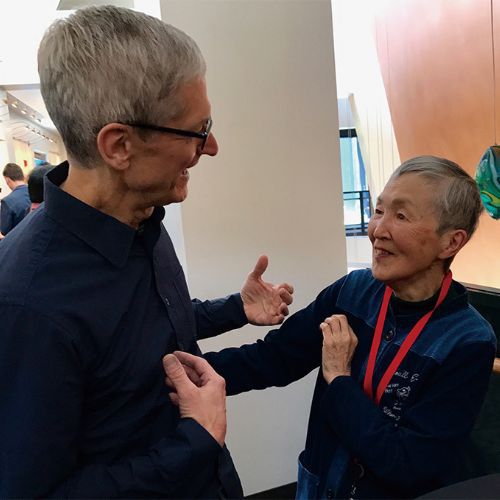Wenning Duan first entered the public eye as a “super-cute Chinese teacher” on Japanese TV. Graciously accepting this attention, Duan also shares the struggles that lie behind this image, and her sense of mission to become a bridge between the two countries she loves.
Duan played a leading role in Sannenmae no Kimi e, a drama staged both in Yokohama and Shanghai as one of the Japan-China friendship projects in 2017.
Growing up in Tianjin, China, Duan first learned of Japan from her father, who had traveled throughout Japan, camera in hand, when he worked there in the late 1990s. “My father shared pictures with me and told me how fascinating Japan was, so I always had a positive image of Japan. I loved to eat Tianjin’s fresh seafood, so when he told me of Japan’s sashimi and sushi, I thought, ‘What does it taste like? I want to try it!’”
Duan describes herself as “naturally very shy.” “As a student, when people watched me, I tended to think they were laughing at me. I had no confidence in myself or my appearance and compared myself with other girls in class thinking ‘I am too short’ or ‘I can’t do what this girl can.’ What I feared most was speaking in front of people,” she recalls. To overcome her shyness, Duan chose to study announcing in university and then got a job at the Tianjin Television Station. She longed to see the world beyond her home city, and next set her sights on the land of her childhood dreams. “I chose my birthday as the date to arrive in Japan and become the ‘new me,’” she smiles.
Duan arrived in Tokyo in May 2009 and enrolled in Japanese language school. She studied hard, forced herself to make friends, and absorbed Japanese culture though part-time jobs as well. She entered Waseda University in 2011, passing at the same time an audition to become a presenter on public broadcaster NHK’s Chinese language program. Duan always gave her best, inspired by her favorite Japanese idiom, ichigo-ichie, which comes from the world of the tea ceremony and means that encounters are once-in-a-lifetime and therefore to be treasured. “China and Japan share many idioms, but ichigo-ichie, unique to Japan, represents for me something truly good and valuable in Japanese culture.”
During this time, increasing numbers of Chinese came to Japan. Duan soon realized that failure for Japanese people to understand Chinese people, and vice versa, was creating cultural misunderstandings that marred what could have been positive Japanese-Chinese encounters. Resolving to do her part, however small, to ease these needless tensions, Duan published the books I love Japan! in 2012 and Understanding Chinese People the Way They Are—Through Manga in 2014. As Duan honestly shares her own struggles, challenges, joys, and dreams, she can encounter audiences in China or Japan at the level of our common humanity.
In 2017, Duan played a leading role in a stage drama, Sannenmae no Kimi e, meaning “To the person you were three years ago.” The drama was performed both in Japan and China with success. Some of Duan’s Japanese fans visited Shanghai just to see her perform there. “Some had never been to China and had negative images of the country. But they fell in love with China on their first visit, a reversal that touches my heart.”
Duan’s way of life also appeals to young Chinese people. A girl contacted Duan on China’s popular Weibo social media site saying that she wanted to study in Japan and become like Duan. Realizing how coming to Japan has opened so many doors for her, Duan hopes that young Chinese people can believe in their potential too.
Despite the bitter history of World War II, Duan believes that China and Japan can shrink the distance between them by learning each other’s customs and way of thinking; by working to understand differences. Rooted now in both cultures, she models the bridge that must be constructed from each side to link Japan and China. As Duan explains, “My mission is to tell Japanese people about China and Chinese people about Japan, in order to foster mutual understanding and positive relationships beyond nationality. Politics are always complex, but holding hands together, people can construct significant bridges. Making peace in a small way will eventually lead to a greater peace. It’s like sowing seeds of peace that will one day bloom gloriously.”
Duan has published five books that introduce to Japanese people the language and the rapidly changing culture of modern China and tell how she has come to love Japan.
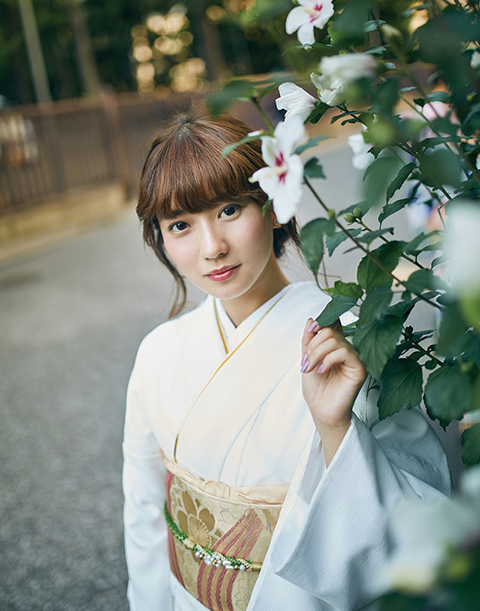
Duan enjoys wearing a kimono: “I think kimono, with their beautiful color and design, represent the Japanese cultural concept of harmony. A kimono may feel a little tight, but the tightness makes your personality straight as well.”

























